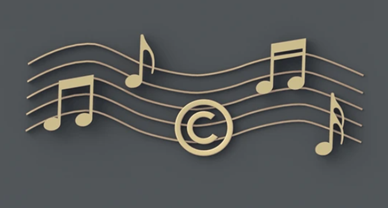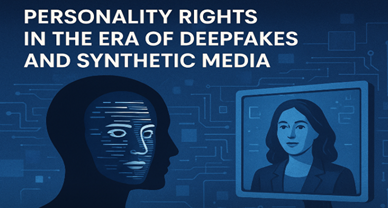Navigating Copyright Infringement Reporting on Digital Platforms in India.
The Technological Revolution of the 21st Century or the digital age has brought changes beyond comprehension in the field of content generation, distribution and consumption. It is because of this pertinent reason that now Intellectual Property Law has gained relevance more than ever, the rise of the internet has made it easier for users to copy and share digital content, such as music, movies, books, software, and images, leading to widespread instances of infringement.[i] The control that copyright holders previously had over their works has been undermined by the ease of digital copying and distribution, sparking continuous discussions and legal disputes regarding how best to strike a balance between defending author’s rights and guaranteeing that the public can access creative content.[ii] The threat looks in the eyes of governments, corporations and every content producer. In India the Copyright Act, 1957 provided remedies for copyright infringement but it was not proving completely successful to prevent infringement over digital platforms and hence Information Technology (IT) Act, 2000 as a primary law which was framed to deal with the cyber related offences is also to assist copyright act to protect infringement.
Copyright Infringement and The IT Act, 2000
Infringement of copyright which is equal to any other form of threat is stealing the content of other person. Copyright act deals with various subject matters from literary work to artistic. The use of these works not by the creator of those content or someone who has the authorisation to use those work is infringement of copyright and the same is mentioned as an offence under the Copyright Act. Crimes committed digitally knows no boundaries and therefore anyone across nation has the power to violate the right vested to a citizen of India under the Copyright Act. The frequency of online websites dealing with pirated software, books and movies are a clear cut example which emphasises on the fact that how urgently we need a strong legal measure to stop this online copyright infringement.

The Information Technology Act, 2000 was brought up by the parliament to deal with and to harmonise all the crimes over the digital and cyber platform which would be inclusive of copyright infringement over the web portals even though it does not lay out the same explicitly. Section 43, 66B, 67 and 69A are categorically the most relevant sections from the IT Act 2000. This act, which originally intended to promote e-commerce and reduce the barriers to digital trade, now plays a pivotal role in governing almost all digital interactions in India, making it indispensable in modern times.
The 2021 guidelines brought by the Government places the responsibility upon the online platforms or as mentioned under the IT Act and the IT Rules are called intermediaries. These so called intermediaries are vested with the task of removing infringing content when they are notified of the same. Platforms like YouTube, Facebook, and Instagram are guaranteed to take proactive measures to avoid copyright infringement by the intermediary liability laws. Takedown requests are now more quickly processed by file-sharing websites and social media platforms.[iii]
The Role of Intermediaries
With the rapid change in cyber laws the intermediaries have made an attempt to provide for quick remedies over their portals against copyright infringement. Every major intermediary has the specific section in their platform to report the content for copyright infringement. Though the system apparently seems to be justiciable but it being a private entity performing a task of judiciary could at certain points be unjust. First let’s create the map of reporting a content which seems to be in violation of your copyright and then we shall wonder upon the legal mechanism if the intermediaries action was in any form unjust or unsatisfactory.
- Identification of Infringement: The copyright owner or the authorised users should check the viability of the content if it seems to be infringing their content in any manner.
- Gathering Evidence: Intermediaries provides for report of content which a user finds is infringing their copyright, and they can report to same through that mechanism. For doing so user should gather evidences from url to any other evidence possible.
- Notice to the Intermediary: If even after reporting in the portal, complainant must send a written notice to the intermediary (platform) specifying the infringing content, its location (URL or link), and proof of ownership or authority over the copyrighted material. The notice should also include the complainant’s contact information and a declaration of good faith.
- Platform’s Response: Intermediaries must act within a certain timeframe, usually 36 hours, after receiving a valid notice, which may include removing or blocking access to the infringing content.
- Counter-Notice: If the alleged infringer believes the removal was incorrect, they may file a counter-notice. The platform then decides whether to restore the content, subject to applicable laws.
The above mentioned course, is a general outline for various intermediary platform’s report action against copyright infringement. The next issue arises when a content is either removed or not removed depending upon situations, leaving the content creator or the user dissatisfied and with a feeling of injustice. The content is removed or not, both parties have the right to seek legal recourse.
- Rights Holder’s Recourse: The rights holder may bring a lawsuit to obtain an injunction, damages, or accounts of profit in accordance with Sections 55 and 63 of the Copyright Act, 1957. The Delhi High Court ruled in the historic case of Myspace Inc. v. Super Cassettes Industries Ltd[iv]. that intermediaries would be held accountable if they did not take reasonable precautions after learning of infringement.
- Alleged Infringer’s Recourse: If content is removed unfairly, it leaves the alleged infringer with very less proper due course. Intermediaries usually being corporate entities, makes it possible to presume that they would act in a way to put the burden off their shoulder in any instances where copyright infringement is sought. To not lose the safe harbour clause, it is seen in multiple instances that intermediaries remove all the content against which a report is made without taking a proper due course to not get itself into the mud of infringement suits. So if your content is removed, and the intermediary denies to put it back. The constitutional remedy to exercise your right to freedom of speech and speech is the only left option, so to knock the door of the courts with a writ petition could be a way.
The way copyright infringement is handled on digital platforms has been greatly impacted by the changing landscape of cyber regulations. Intermediaries though have created mechanisms to deal with copyright infringements, questions regarding their viability and fairness exists. Due diligence and the preservation of rights are emphasised by the legal framework, which includes the Copyright Act, 1957, and the IT Act, 2000, as well as by seminal cases such as. The judgment of Myspace Inc. v. Super Cassettes Industries Ltd. and more like it along with the legal frameworks of the IT Act and the Copyright Act ensures that due diligence is followed. However, the contrast and conflict between the citizens freedom of speech and expression with the intellectual property right encumbrances comes into existence when proper due course is not followed. Upholding justice in the digital sphere requires a more open and equitable approach as digital platforms develop further, with sufficient legal options for both rights holders and alleged infringers.
Author:– Devanshu Dey, in case of any queries please contact/write back to us at support@ipandlegalfilings.com or IP & Legal Filing.
[i] Shreya Singhal v. Union of India, (2015) 5 SCC 1.
[ii] Saregama India Ltd. v. M/s. Engadget Digital Media Pvt. Ltd., AIR 2019 SC 1624 (India).
[iii] Information Technology (Intermediaries Guidelines) Rules, 2011, Ministry of Electronics and Information Technology, available at https://www.meity.gov.in/content/information-technology-intermediaries-guidelines-rules-2011 (last visited Mar. 19, 2025).
[iv] Myspace Inc. v. Super Cassettes Industries Ltd., SCC Online Del 6382 (2016)

